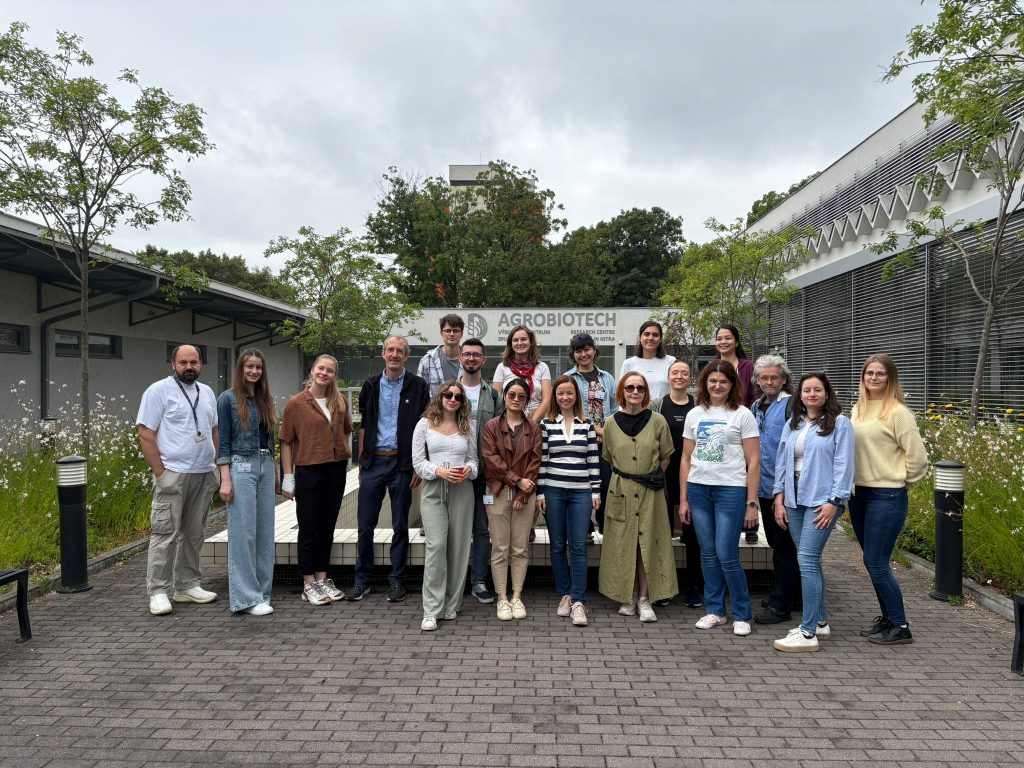Training School 2025 (Nitra)
Training School “Metabarcoding of Plant Microbiomes II”
Announcement
The 3rd Training School of the MiCropBiomes COST Action on “Rhizosphere Analysis: Metabarcoding with ONT and Culturomics” will take place in Nitra, Slovakia, from July 14 to 18, 2025.
Training School series will be focused on gaining direct, hands-on experience with current techniques used in the analysis of plant-associated microbial communities. These include Oxford Nanopore Technologies (ONT) sequencing of 16S rRNA and ITS amplicons, and bacterial cultivation with MALDI-TOF MS identification. Through the full workflow—from field sampling to sequence data—the training will offer both technical competence and critical insight into experimental design, troubleshooting, and data interpretation.
Beyond the technical content, the training school is also intended to foster networking and peer learning in a supportive, collaborative environment. Participants will work together to address a real experimental question: “How does the rhizosphere microbiome change following compost application?” This experience will provide valuable context for applying these methods in your own research.
The techniques introduced during the training school represent the state-of-the-art in studying plant–microbe interactions. Amplicon sequencing using ONT allows for flexible and real-time analysis of microbial communities, while cultivation-based methods combined with MALDI-TOF MS provide valuable insight into functional and taxonomic properties of cultivable microbes. Together, these approaches enable researchers to explore both the diversity and activity of microbial populations in the rhizosphere. The skills acquired during this training can be directly applied in a range of research and applied contexts — from fundamental studies in microbial ecology to the development of sustainable agricultural practices, including microbial inoculants and soil health monitoring.
Trainers:
| Name | Institution | Location and country |
| Dr. Ting He | Faculty of Science and Engineering Chemical and Pharmaceutical Biology | Groningen (The Netherlands) |
| Dr. Joël Pothier | Zürich University of Applied Sciences, School of Life Sciences and Facility Management | Wädenswil (Switzerland) |
| Dr. Renata Artimová, Dr. Marek Barta | Institute of Forest Ecology Slovak Academy of Sciences, Department of Plant Pathology and Mycology | Nitra (Slovakia) |
| Prof. Miroslava Kačániová, Prof. Jana Žiarovská, Dr. Lucia Urbanová, and Dr. Juraj Medo | Slovak University of Agriculture in Nitra | Nitra (Slovakia) |
Further information can be found in the first circular dated 28 May 2025: Poster_Third Training School (First Circular)
Report
The COST Training School, “Metabarcoding of Plant Microbiomes II: Rhizosphere Analysis – Metabarcoding with ONT and Culturomics,” was held at the AgroBioTech Research Center, Slovak University of Agriculture in Nitra, Slovakia, from July 14–18, 2025.
Objective: The training school aimed to provide comprehensive theoretical and practical knowledge in rhizosphere microbiome analysis through two complementary methods:
• Oxford Nanopore sequencing (metabarcoding)
• Microbial culturomics and MALDI-TOF MS identification
Programme Highlights: Participants engaged in a full workflow, from field root sampling and DNA extraction to ONT sequencing, microbial culturing, and MALDI-TOF identification. The program combined lectures, fieldwork, laboratory experiments, and bioinformatics discussions.
Key Outcomes:
• Participants gained hands-on experience and theoretical insights across the entire microbiome research workflow
• Confirmed that compost application alters root microbiomes compared to mineral fertilization
• Developed skills in protocol modification, troubleshooting, and workflow optimization
Feedback & Impact: Participants rated the training highly (average scores 4.3–4.9/5). They valued:
• Hands-on experience with ONT sequencing, culturomics, and MALDI-TOF
• High-quality trainers and facilities
• Networking opportunities across 14 countries
Areas for improvement included more time for in-depth data analysis and improved time management during practicals.
Support: The school was supported under COST Action CA22158 (MiCropBiomes) through reimbursement of 2 trainers and 11 trainees, a Local Organiser Support grant of EUR 3,000, and material support valued at EUR 1,900.
Conclusion: The event successfully enhanced participants’ skills, strengthened international collaboration, and contributed to advancing plant microbiome research. A follow-up bioinformatics workshop is planned to build on the datasets generated.

